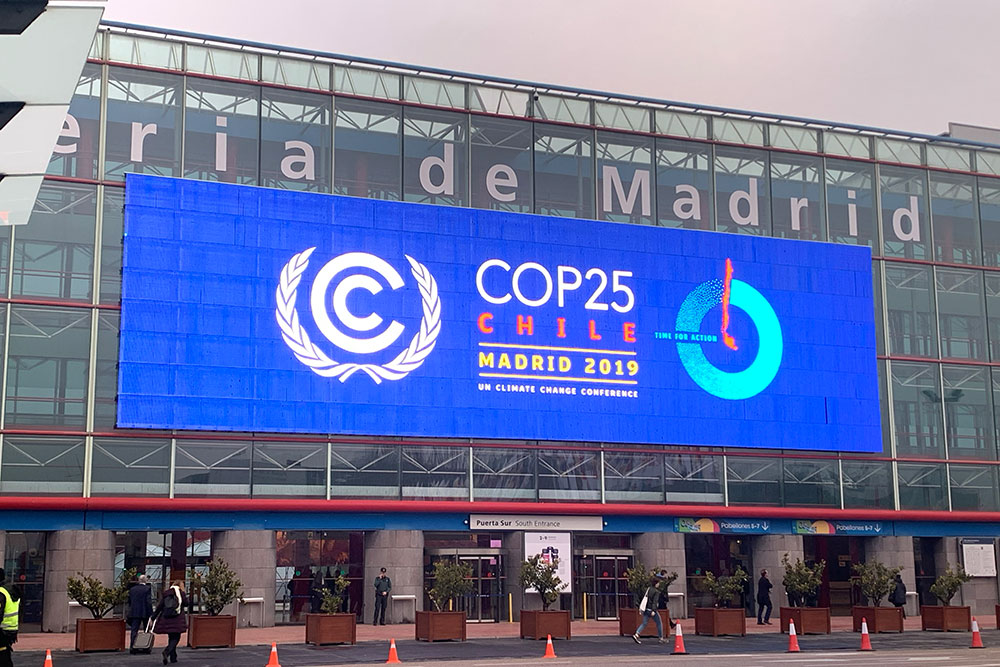
From December 2 to 15, 2019, climate negotiators, high-level government officials, business leaders, and members of civil society from around the world gathered in Madrid, Spain, for the 2019 United Nations Climate Change Conference. MIT faculty, researchers, students, staff, and alumni working on climate solutions were among those in attendance. Here, some of the MIT attendees—including several first-time participants—share their takeaways from the conference and discuss projects they presented, as well as ideas for advancing climate action in the coming year.
On the pace of progress
Attending COP was an amazing experience—I felt that I got to be a small part of history and that the whole world was watching, hoping for a courageous outcome and disappointed when that outcome did not materialize. I felt simultaneously struck by the dedication and conviction shown by youth and other activist groups, and shocked by the apparent lack of urgency and leadership on the part of negotiators. Attending research talks and side events, as well as witnessing the negotiations themselves, prompted me to reflect on my own role and future path in battling climate change, and left me with a lasting sense for the need for urgent action; my key takeaway was the phrase “climate emergency,” simultaneously an apt description and a call to action.
Avital Baral, Undergraduate Student, Department of Urban Studies and Planning
The “Time for Action” theme never seemed more relevant—yet ever more apparent it was falling on deaf ears. It was frustrating as an attendee of last year’s COP in Katowice to see so many important decisions of developing the “rulebook” for the Paris Agreement were again punted to the following COP. However, it should never be doubted that the majority of attendees deeply care about solving this issue, from observer organizations to an innovative private sector and deeply dedicated public servants who negotiated each day into the early morning trying to get immovable countries onboard.
Anthony Fratto Oyler, SM ’19; Former Research Assistant, MIT Energy Initiative
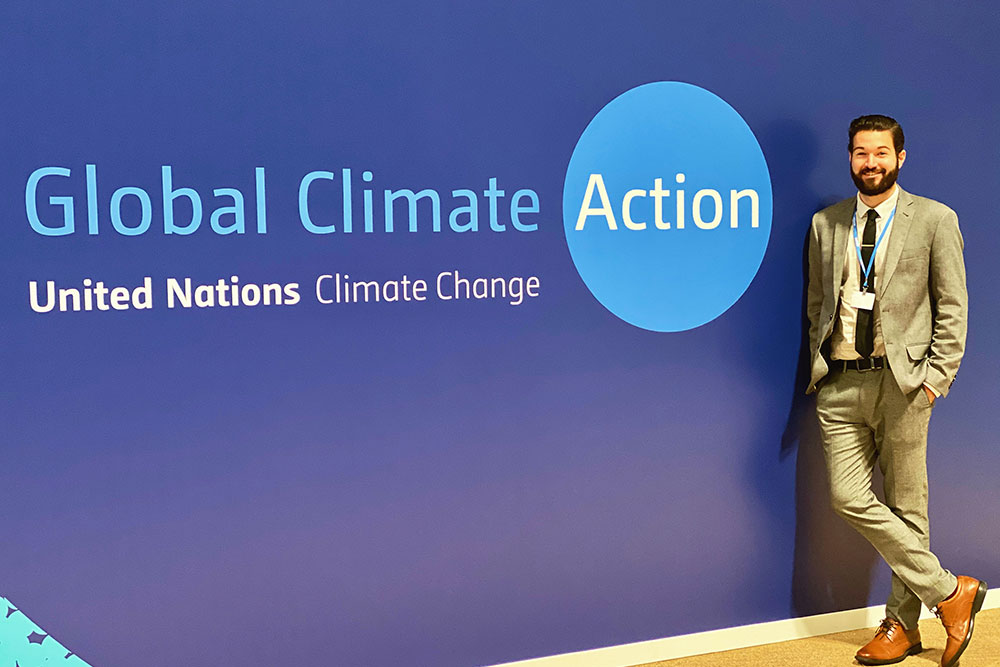
The sense of momentum and energy was reversed from what I had expected. It was the public and official side events that were the focus of attention and creativity. The negotiations were not center stage, both literally and figuratively; they lacked any sense of urgency or drive. I worry that the United Nations, created in the aftermath of WWII, does not have the capacity to solve the climate crisis.
Sarah Meyers, Education Program Manager, MIT Environmental Solutions Initiative
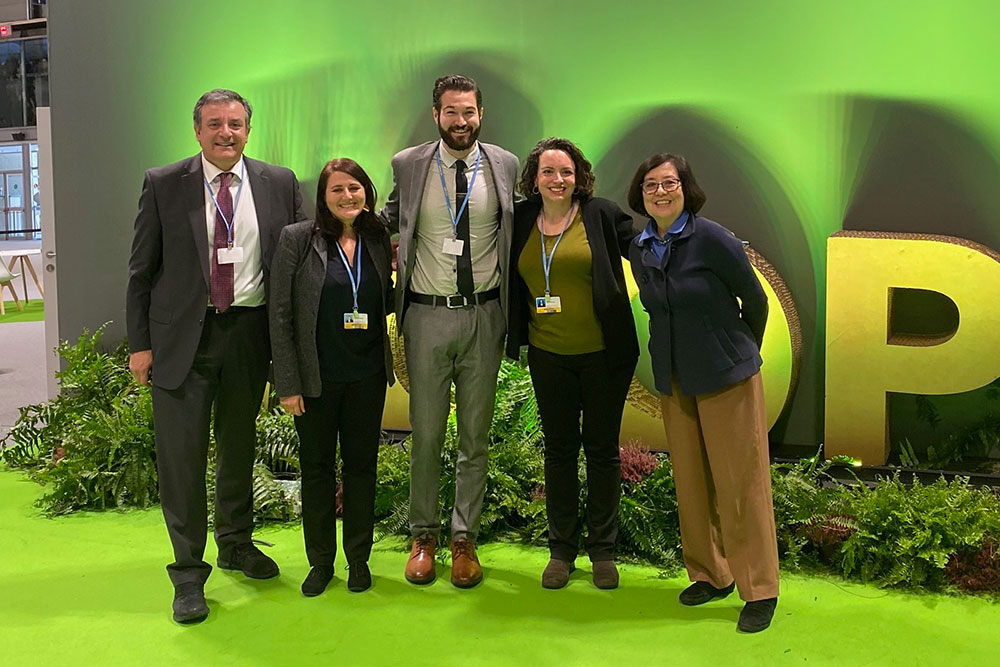
While the progress at COP meetings seems slow, the international cooperation is essential to tackle climate change. To paraphrase the famous phase by Churchill about democracy: “COP may be the worst form of governing, except for all other forms that have been tried from time to time.” The task of climate change mitigation is enormously challenging and it is extremely important to keep involvement of all interested parties for the ultimate success. It is also very important for MIT to continue to participate in COPs to be an objective provider of information.
Sergey Paltsev, Deputy Director, MIT Joint Program on the Science and Policy of Global Change; Senior Researcher, MIT Energy Initiative
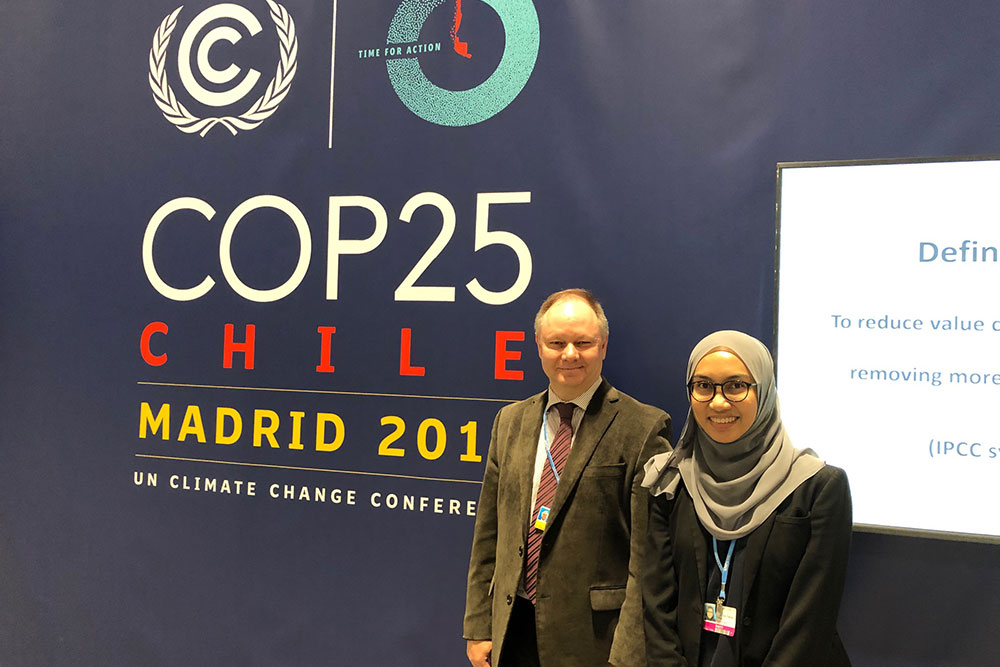
On an award-winning MIT conservation collaboration
The basis of this project is to take technologies that are exploding in other realms, like unmanned aerial vehicles, AI, and machine learning, and shift them over to the things that we are interested in: climate change, conservation, and other issues.
John Fernández, Director, Environmental Solutions Initiative and Professor of Building Technology, MIT, at a COP25 event where ESI’s project “UAVs/Drones for Equitable Climate Change Adaptation” was named one of nine winners of the Global Environment Facility (GEF) Challenge Program for Adaptation Innovation
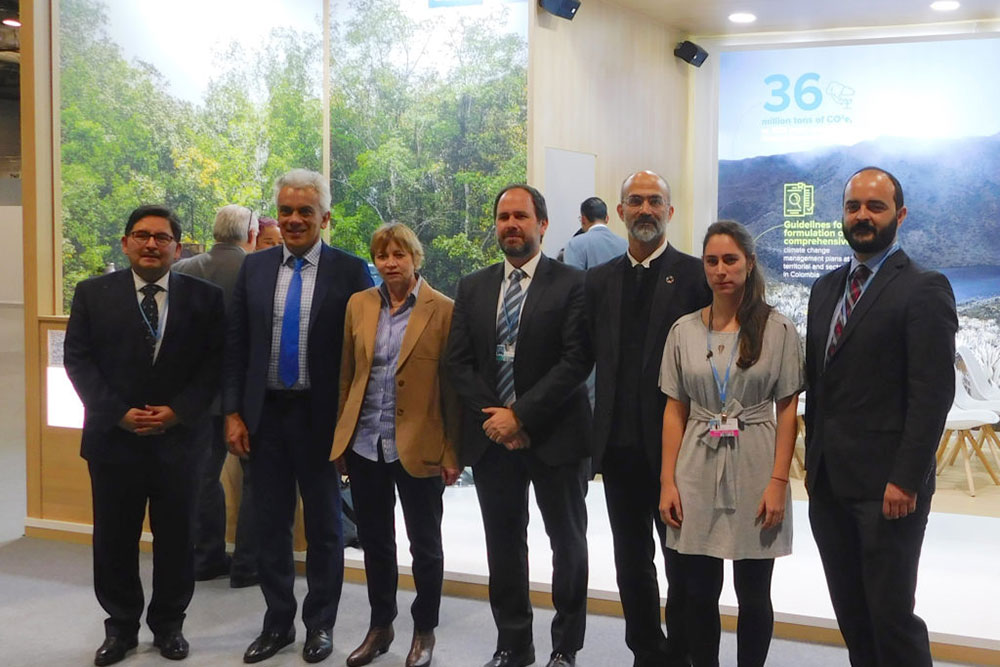
This investment will support local communities in monitoring, protecting, restoring and pioneering sustainable uses of the forest as a new source of income and security. The results of this project will be applied in Mocoa and then extended to other locations in Colombia and Latin America.
Maria T. Zuber, Vice President for Research and E.A. Griswold Professor of Geophysics, MIT, on ESI’s winning GEF Challenge project
On additional MIT activities underway to advance climate solutions
As a panelist in an official UN event focused on Action for Climate Empowerment, rooted in Article 6 of the United Nations Framework Convention on Climate Change, which calls for public involvement in developing meaningful and constructive responses to climate change, and in subsequent meetings with over 100 different stakeholders, the effusive appreciation for the kind of innovation in negotiation pedagogy we are fostering at MIT hints at a widely shared yearning for practical wisdom in conflict resolution, rooted in emotion and empathy, that cuts across age groups, cultures, and regions.
Bruno Verdini, Lecturer of Urban Planning and Negotiation, MIT; Executive Director, MIT-Harvard Mexico Negotiation Program
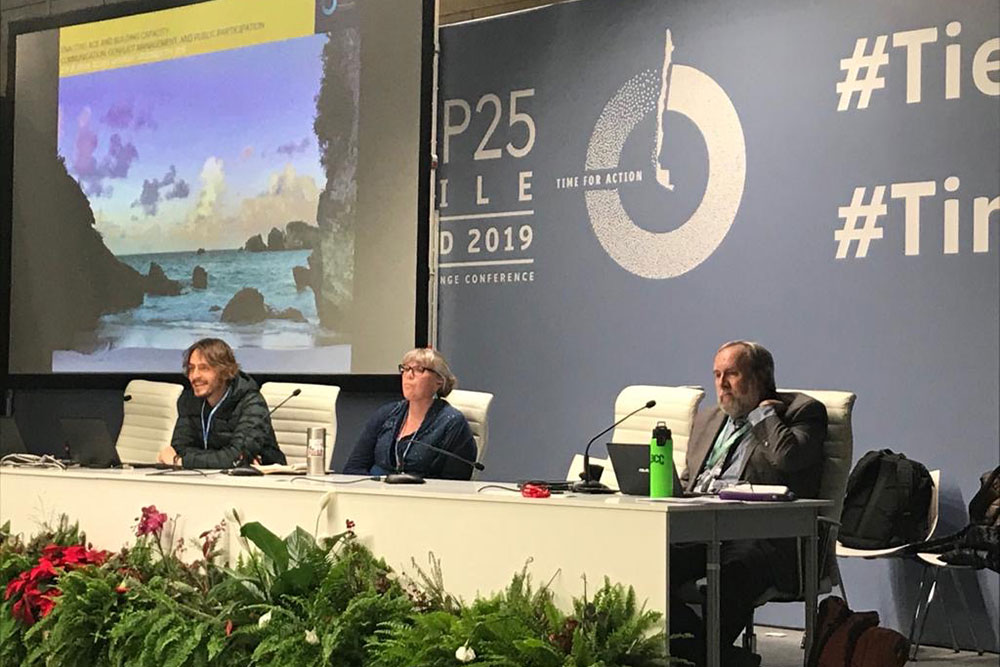
For the last three years, MIT Center for Collective Intelligence’s Climate CoLab has worked with United Nations Secretary-General’s Climate Resilience Initiative, A2R, to run contests on important topics for building climate resilience and adaptation strategies. The contest this year focused on Least Developed Countries, which remain a vital development topic, as the impacts of climate change will affect some of these states the most.
Kathleen Kennedy, Executive Director, MIT Center for Collective Intelligence
MIT Climate CoLab was a part of some very interesting events, including an event on building climate resiliency. Winners from our past contests, including a team from Nepal, had the opportunity to talk about their important work and share perspectives. We think this was an important addition to the conversation, and hope to see more things like this.
Annalyn Bachmann, Manager, MIT Center for Collective Intelligence
On takeaways and next steps
My key takeaways were 1) the ascendency of “climate emergency” as a phrase to define the needed climate action, and 2) the usefulness of the “carbon budget” as a structure for both planning and education. I will propose that we bring these into future versions of the MIT En-Roads Climate Simulator that was presented in Madrid, especially to assist cities in assessing their plans. Also, it was memorable to have the opportunity to meet some of the dynamic young people there, led by Greta Thunberg. Her 12-minute speech to the ministers was quite remarkable in its precision conveying the significance of both the “climate emergency” and “carbon budget” concepts, as was her final argument on how education catalyzes the people to demand needed political change.
Harvey Michaels, Lecturer – Energy Management Innovation, Sloan School of Management
I made valuable connections with members of the MIT community, international scientists, engineers, and policymakers. The insights I gained from presentations and negotiations sessions provided me with an opportunity to formulate a research project on the climate policy process.
Erin Rae Hoffer, Sloan MBA ’00
We need more information to make climate-smart decisions in our everyday life. Many people feel powerless to stop climate change, waiting for governments and industry to implement the systems changes needed to reach climate goals. If “regular people” had access to the data I look at every day, such as corporate climate disclosures and carbon footprints, we could make more informed decisions about the products we buy and the companies we support. The companies have the data, but how can we make it accessible to society?
Suzanne Greene, Program Manager, Sustainable Supply Chains Initiative, MIT Center for Transportation and Logistics